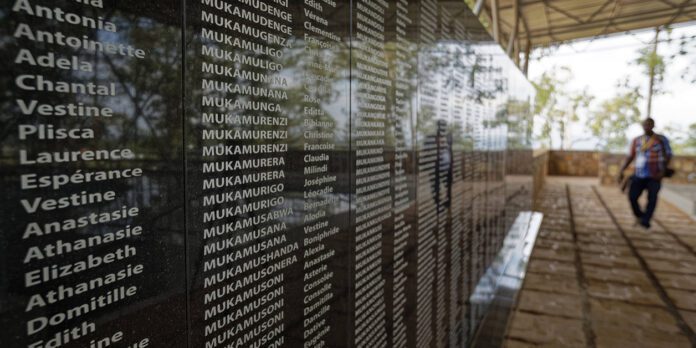Is the series finally reaching its epilogue? Since December 27, 2021, the situation of eight Rwandans tried by the International Criminal Tribunal for Rwanda (ICTR) has given rise to a simmering conflict between the international jurisdiction, Niger and Rwanda. A case that has just been recovered.
After being acquitted or having served their sentence, these men were initially welcomed by the Republic of Niger under an agreement signed on November 15, 2021 between this country and the International Mechanism called to exercise the residual functions of courts international penalties on Rwanda and the former Yugoslavia.
Fear for national security
However, since then, they have been below The threat of an expulsion measure, with Niamey finally considering that his presence on Nigerien soil was “likely to disturb public order and national security”. Problem: No destination seems possible to “relocate” them to another state.
In the United States, Canada, Belgium, France, Luxembourg, England or the Netherlands – countries where they reside with their families and where they would like to benefit from a residence permit or asylum – these dignitaries of the former Rwandan regime who specify the genocide against the Tutsi in 1994, they are in fact considered undesirable. For its part, Rwanda claims to be ready to receive them. But this option is ruled out by those involved, who do not want to run the risk of being judged a second time.
“Rwanda would have demonstrated its “determined commitment to making the necessary efforts for the return of its nationals””
On February 1, Kigali once again defended this option. In a letter – which young Africa we could consult – addressed to the President of the Security Council, the Russian Vasily Nebenzya, the Rwandan Minister of Justice, Emmanuel Ugirashebuja, made a long appeal in favor of the return to Rwanda of the eight people in question. According to the minister, Rwanda has demonstrated in recent years its “determined commitment to making efforts mandatory with a view to allowing its nationals to return to their country, whatever the circumstances that led them to leave it.” This concerns in particular, he continues, Rwandans “who were acquitted or who served their sentence” after being accused of participating in the 1994 genocide.
A temporary solution
But at the end of a long argument, detailed in its decision of February 7, the Mechanism prefers to return to the starting point: “Orders the Registrar to immediately take any necessary measure or agreement so that the people who must be relocated are returned to the Mechanism office in Arusha, at least temporarily, until its transfer to another State, in accordance with articles 23, 30 and 39 of the concluded agreement; orders the government of Niger to provide all necessary assistance to enable the implementation of this decision,” wrote Tanzanian judge Joseph E. Chiondo Masanche.
In the past, figures tried for genocide managed to obtain the right to remain outside Africa. “This was particularly the case of generals Ndindiliyimana [ancien chef de la gendarmerie, condamné en première instance avant d'être acquitté] and Kabiligi [chef des opérations militaires à l'État-major, acquitté par le TPIR]”, summarizes the lawyer Canadian de Protais Zigiranyirazo, John Philpot, who considers that “the Nigerian State has renounced its obligations, just as O Mechanism."

